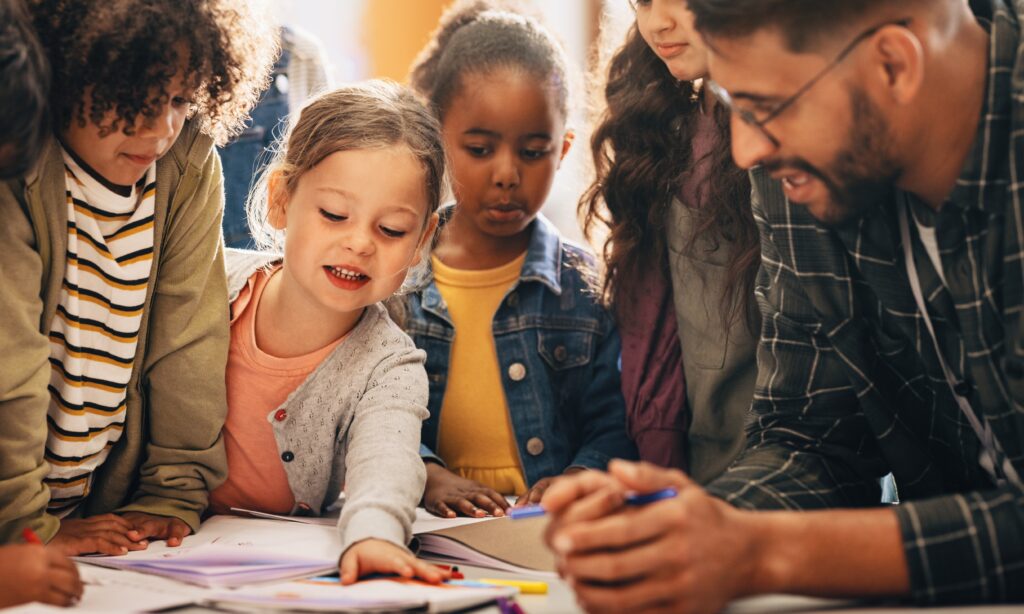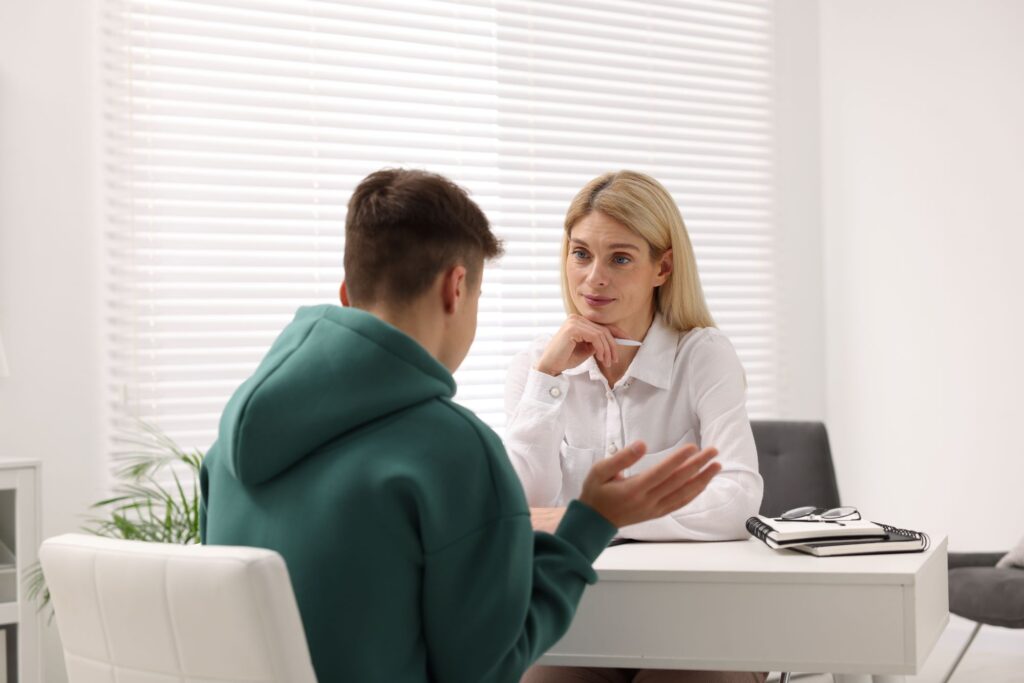Support for Learning and School Attendance

Support for learning
The Basic Education Act reform related to learning support came into effect on August 1, 2025. Learning support means the assistance a student needs in learning and attending school. The previously used three-tier support system (general support, enhanced support, and specialized support) is being phased out.
The aim of the reform is to ensure that students receive learning support as early as possible within their own group. Strengthening student support is also based on more systematic cooperation among the school’s teaching and care staff.
Learning support is divided into group-specific support and individual support.
Group-spesific forms of support
Group-spesific forms of support refer to group-specific arrangements intended for all students. Group-spesific forms of support are the primary forms of support and are the right of all students. Group-specific support is provided flexibly as soon as the need arises, and no separate decisions are made on the implementation of the support for the pupils.
Group-spesific forms of support include
- general remedial teaching
- remedial teaching in the language of instruction
- teaching provided by a special educational needs teacher.
If group-specific support proves to be insufficient, students can receive individual support that is regular and based on individual needs for support.
Individual forms of support
Individual forms of support include
- special needs teacher’s teaching partly in small groups
- special needs teacher’s or special class teacher’s teaching in a small group
- teaching of a special class teacher in a special needs class
- interpreting and assistant services and assistive devices
Individual forms of support are planned according to the student’s personal needs, and their aim is to ensure the student’s progress in their studies. An administrative decision is made on individual forms of support, and support is planned in cooperation with the guardian.

Student Welfare
Student welfare supports students’ learning, health and well-being. It is a collaboration between teachers, families and student welfare professionals – such as school psychologists, curators and school nurses – that is carried out confidentially and preventively for the benefit of both the individual and the entire school community.
Classroom-Based Special Education
Classroom-based special education is provided by special class teachers in primary and secondary schools. The decision to provide special support is usually made at the time of the transition to classroom-based special education.
The supportive and rehabilitative Kari School small class from grades 1-6 is for children who need support with attention and social situations. The aim is to support the development of the child’s self-esteem, behaviour, sense of responsibility, motivation for school and life management skills.
The supportive and rehabilitative small class from grades 7-9 at Hj. Nortamo Secondary School is for pupils who need support in attentiveness and social situations. The aim is to support the development of the adolescent’s self-esteem, behaviour, sense of responsibility, school motivation and life management skills.
Small group education at the Nanu School is for pupils with learning difficulties of a broad and/or developmental nature. The aim is to help and support pupils so that they have equal opportunities to complete their compulsory education in accordance with their own learning conditions and in cooperation with their peers.
The small groups at the Pohjoiskehä School and Naula Secondary School provide rehabilitative basic education for pupils with challenging autism spectrum disorder, adhd or similar problems and who have a special support decision. The school also provides additional education for pupils who need special support before moving on to secondary education. The aim is to integrate pupils into mainstream classes whenever possible.
Flexible Basic Education
The flexible basic education group (JOPO) started its operations in Hj. Nortamo Secondary School in autumn 2016. The group is intended for pupils in grades 8-9 in Rauma who would benefit from strong support of their motivation to study and life management, and who may have difficulties in their social relationships, low attendance rates and risk of exclusion from further education or working life.
In flexible basic education, work and study methods are activity-based, and work training, which take place almost once a month, are the pupils’ optional subject. The design takes into account the individual needs of the pupil. Teaching takes place in small groups, with contact teaching at school and guided workplace learning. Out-of-school learning, excursions and field trips are also an important part of flexible basic education. The teacher is partnered by a teacher mentor who supports pupils in various aspects of their lives.
The deadline for applications for the August 2025 intake was 31.3.2025.
Cooperation Between Home and School
The school’s most important partner is the family. Guardians are the best experts on their children. Cooperation between home and school is an important element for a child’s good learning, growth and development.
Under the Basic Education Act, the primary responsibility for a child’s education lies with the guardians. The school’s role is to provide education and support the growth of the pupil. The smooth functioning of this cooperation requires activity, openness and commitment. Cooperation between home and school must be based on mutual trust and respect.
Seeing the individual needs of the child requires taking into account the different needs of families. Close communication between home and school helps to find support at an early stage when concerns arise. The family is supported by a multi-professional network of student welfare services.
There are many ways in which home and school work together. Parents’ evenings, celebrations, open door days and joint outings are ways of working together between home and school. In a child’s own classroom, cooperation takes the form of parents’ meetings and discussions, a parents’ committee and the class’s own parties and excursions.